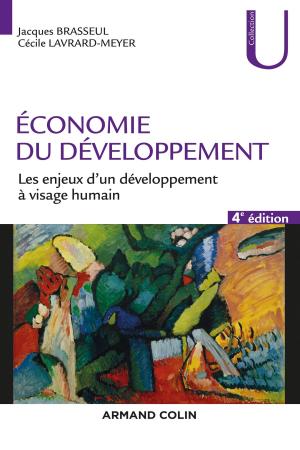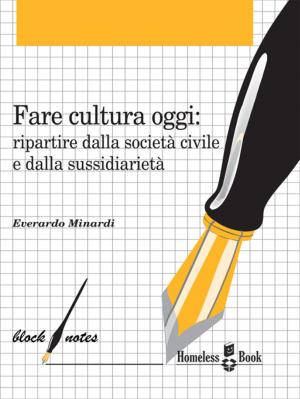The Sweet Apocalypse (An Essay About Dying Current Civilization)
Nonfiction, Science & Nature, Science, Biological Sciences, Ecology, Social & Cultural Studies, Political Science, Government, Social Policy| Author: | Ochnavi Atatoj | ISBN: | 9780463324004 |
| Publisher: | Ochnavi Atatoj | Publication: | July 1, 2018 |
| Imprint: | Smashwords Edition | Language: | English |
| Author: | Ochnavi Atatoj |
| ISBN: | 9780463324004 |
| Publisher: | Ochnavi Atatoj |
| Publication: | July 1, 2018 |
| Imprint: | Smashwords Edition |
| Language: | English |
This is the beginning ||
I have come to the idea for this paper turning in my head the word apocalypse (or -sus), where apo- is a prefix in old Greek said to mean back /-ward, but I think that the idea here is rather in some movement ahead due to some digging, picking, delving, like with a pickaxe, of making a step forward. This has to be so because dopo in Italian is after, and only po in Latin, as shortened from podex, is something near to the ground, what is to the same idea if we imagine that we have walked on … our fours, and then have sat on our derriere-bottom (and so on, I will try not to indulge in pretty long etymological explanations). In some cyclical process there has not to be big difference whether we move in one direction or in the opposite, and it can also be meant that pulling ourselves back we see better the object, or that we return back in the time to some primeval chaos, but I have in mind this picking and making of step because of the old Arabic hap /ap as a morsel, i.e. we have tried to bite a piece from this kalo thing. Yet the important is not the prefix but the root and I have dug about kalo-root maybe before a quarter of a century, and have come to the conclusion that this mean both, good, or bad things, it depends. Depends on what? Ah, on the look that we cast at the metamorphosis of the things, because the decaying is a bad thing, but it is also good, it is unavoidable, necessary. |
These are dialectical reflections, which people do not do nowadays but have to — if you ask me, that’s it. So the reasons for this meaning are, for one thing, Bulgarian word ‘kal’ meaning mud, or Russian the same ‘kal’ but meaning there sh#t (guano in Latin), if I may allow myself to use such words; and for another thing there are many words with this root as something good, like: kaleidoscope, Greek kalimera as good day, their muse Calliope, the callanetics, Turkish and Bulgarian kalay as the metal tin, and others. But one can cite also only the Hindu goddess Kali, which is a goddess, yet on the under-terrestrial world. And with all these long explanations I want to tell you that the apocalypse is moving to the mud or sh#t, or the decay, or that we want to bite in it. To some similar ideas one can come digging around Arabic kef /kief /kaif as big pleasure, where is Russian ‘kefir’ as kind of sour milk, but also Sanskrit kaphas as slime or sediment (or then Persian kaf /kafa as a foam or froth. Id est, we like the dirty thinks, we know that they are dirty, but we often like them all the same. |
And the apocalypse, or at least the first steps towards it, look more or less good, we have so many things that we just wonder what to throw out to the garbage first, but this is not pretty clever. This is not much clever because it is one thing to make natural kal-mud, and quite another thing to produce things that do not turn to mud or sh#t. I usually like to make here difference between: ecologically clean dirtiness, and ecologically dirty cleanliness! In the same way may be made difference between necessary decaying or wrong decaying (of the society in general). Here the problems are not only in qualitative aspect, but also in quantitative, in the measure or proportion, and as far as no god, existing or not, tells us what is right and what not, it becomes necessary for such clever guy like me — what is seen at least by the fact that I am not valued in my barbarian country (or rather am valued about 3 bus tickets daily, as I have already explained in other materials), because in such countries are valued and liked, by the official instances, as well also by the masses, people who have as less brains as possible (in order to be easily bamboozled by our democratic authorities) — to indulge in popular explanations of obvious things. |
... etc.
This is the beginning ||
I have come to the idea for this paper turning in my head the word apocalypse (or -sus), where apo- is a prefix in old Greek said to mean back /-ward, but I think that the idea here is rather in some movement ahead due to some digging, picking, delving, like with a pickaxe, of making a step forward. This has to be so because dopo in Italian is after, and only po in Latin, as shortened from podex, is something near to the ground, what is to the same idea if we imagine that we have walked on … our fours, and then have sat on our derriere-bottom (and so on, I will try not to indulge in pretty long etymological explanations). In some cyclical process there has not to be big difference whether we move in one direction or in the opposite, and it can also be meant that pulling ourselves back we see better the object, or that we return back in the time to some primeval chaos, but I have in mind this picking and making of step because of the old Arabic hap /ap as a morsel, i.e. we have tried to bite a piece from this kalo thing. Yet the important is not the prefix but the root and I have dug about kalo-root maybe before a quarter of a century, and have come to the conclusion that this mean both, good, or bad things, it depends. Depends on what? Ah, on the look that we cast at the metamorphosis of the things, because the decaying is a bad thing, but it is also good, it is unavoidable, necessary. |
These are dialectical reflections, which people do not do nowadays but have to — if you ask me, that’s it. So the reasons for this meaning are, for one thing, Bulgarian word ‘kal’ meaning mud, or Russian the same ‘kal’ but meaning there sh#t (guano in Latin), if I may allow myself to use such words; and for another thing there are many words with this root as something good, like: kaleidoscope, Greek kalimera as good day, their muse Calliope, the callanetics, Turkish and Bulgarian kalay as the metal tin, and others. But one can cite also only the Hindu goddess Kali, which is a goddess, yet on the under-terrestrial world. And with all these long explanations I want to tell you that the apocalypse is moving to the mud or sh#t, or the decay, or that we want to bite in it. To some similar ideas one can come digging around Arabic kef /kief /kaif as big pleasure, where is Russian ‘kefir’ as kind of sour milk, but also Sanskrit kaphas as slime or sediment (or then Persian kaf /kafa as a foam or froth. Id est, we like the dirty thinks, we know that they are dirty, but we often like them all the same. |
And the apocalypse, or at least the first steps towards it, look more or less good, we have so many things that we just wonder what to throw out to the garbage first, but this is not pretty clever. This is not much clever because it is one thing to make natural kal-mud, and quite another thing to produce things that do not turn to mud or sh#t. I usually like to make here difference between: ecologically clean dirtiness, and ecologically dirty cleanliness! In the same way may be made difference between necessary decaying or wrong decaying (of the society in general). Here the problems are not only in qualitative aspect, but also in quantitative, in the measure or proportion, and as far as no god, existing or not, tells us what is right and what not, it becomes necessary for such clever guy like me — what is seen at least by the fact that I am not valued in my barbarian country (or rather am valued about 3 bus tickets daily, as I have already explained in other materials), because in such countries are valued and liked, by the official instances, as well also by the masses, people who have as less brains as possible (in order to be easily bamboozled by our democratic authorities) — to indulge in popular explanations of obvious things. |
... etc.















